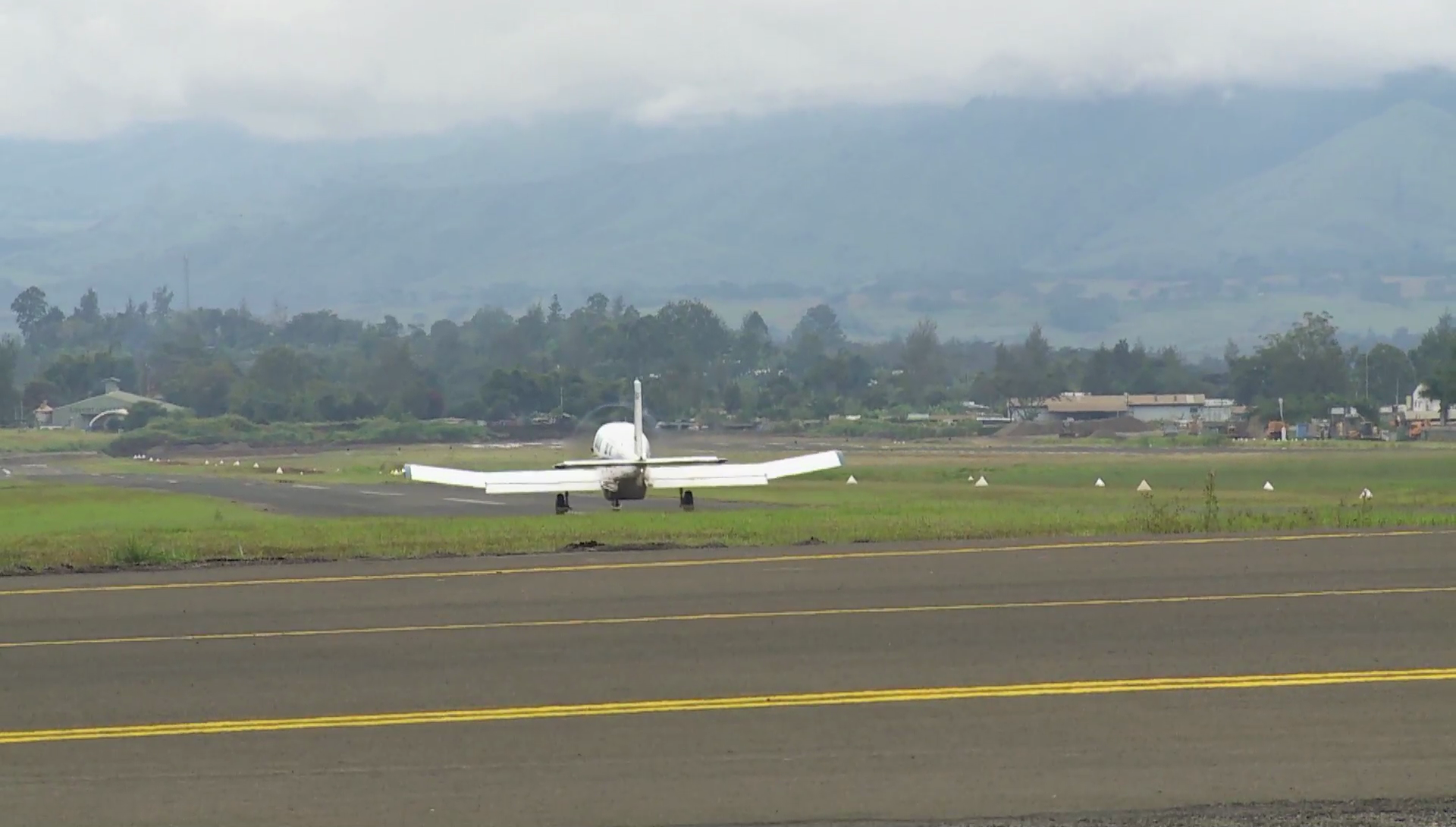Ministers responsible for civil aviation and senior aviation officials from 14 Pacific Islands States convened virtually this week to endorse the Port Moresby Declaration formalizing their shared commitments to progressing important Pacific regional aviation matters through a new enhanced collaboration framework.
The Regional Aviation Ministers Meeting (RAMM), hosted by the Papua New Guinea government on Wednesday, 30 June, resulted in Pacific Forum Member States endorsing the Port Moresby Declaration on Aviation Safety and Security.
The Port Moresby Declaration provides a range of strategic priorities and actions to respond to the critical challenges regarding aviation safety and security performance facing Forum Members, who have been seriously impacted by the COVID-19 pandemic.
The region faces challenges building and maintaining a safe, secure, resilient reliable, efficient, environmentally sustainable, and economically viable civil aviation system. These include compliance with the International Civil Aviation Organisation’s (ICAO) Standards and the Convention on International Civil Aviation, increasing Pacific aviation connectivity and internationally, sustainable funding mechanisms, and having regard to the serious impact of COVID-19 on aviation and the Pacific’s social and economic recovery.
The Ministerial Meeting was the first such high-level regional aviation meeting since the initiation of the Pacific Civil Aviation Safety and Security Treaty (PICASST) in 2004.
Australia, Cook Islands, Fiji, French Polynesia, Kiribati, Nauru, New Caledonia, New Zealand, Niue, Papua New Guinea, Samoa, Solomon Islands, Tuvalu, and Vanuatu attended the RAMM.
Forum Member Countries welcomed the participation of the Pacific Islands Forum Secretariat (PIFS) Secretary-General, the International Civil Aviation Organisation (ICAO) Secretary-General, and senior officials from CROP agencies including the South Pacific Tourism Organisation (SPTO), Pacific Islands Development Program (PIDP), and South Pacific Community (SPC). The Meeting was also attended by government officials from the United States of America and Singapore, as well as officials for the World Bank, and the Airlines of the South Pacific Association.
RAMM Chair and Papua New Guinea Minister for Civil Aviation, the Sekie Agisa said:
“The Port Moresby Declaration is a considerable achievement which formally builds on previous commitments and gives renewed focus to implementing a holistic and collaborative regional approach to achieving sustainable aviation safety and security.”
“Although faced with many challenges, the message is clear, through collaboration and commitments, our region can achieve strengthened aviation safety and security compliance,” he said.
The Declaration demonstrates Pacific governments’ commitments to creating a way forward for strengthened aviation safety and security. Safe and secure aviation is recognized as an essential requirement to enabling connectivity and sustainable development in the Pacific.
Secretary-General of the PIFS, Mr. Henry Puna said:
“We need to shift our thinking and our approach from ‘business as usual and start to explore new and innovative approaches to create a more safe, secure and sustainable aviation sector for our region; and one which promotes the spirit of the Blue Pacific while respecting national jurisdictions and development aspirations.”
“The prioritization of aviation in the Pacific States is critical to assure the local levels of ICAO compliance which will ultimately restore this region’s significant aviation’s benefits,” commented ICAO Secretary General Dr. Fang Liu, “and it’s my hope that the Port Moresby Declaration will suitably emphasize the importance of air transport to national and regional recoveries to the Pacific States.”
Another significant milestone was achieved with the endorsement of the Framework for Aviation in the Pacific which will enhance regional collaboration through the development of a 10-year Pacific Regional Aviation Strategy.
The Strategy will create a pathway to the long-term safe and sustainable development of the aviation system to deliver the vision for a harmonized, collaborative and connected Pacific aviation system that supports safe, secure, and sustainable aviation in all Pacific States.
The Pacific Regional Aviation Strategy will focus on COVID-19 recovery and long-term sustainable development of the Pacific aviation system including strengthening Member States’ regulatory oversight capability, capacity, and effectiveness.
It was also agreed that the PICASST will be amended to better address the current needs of the region to enable a wider scope of collaborative activities, and leverage opportunities including a stronger Pacific voice in the international aviation system.
Ministers also agreed to strengthen the multi-functional regional aviation organization to address aviation issues and opportunities as a key regional priority.
In that regard, Ministers recognized the improved performance of the regional aviation organization, the Pacific Aviation Safety Office (PASO). They agreed to strengthen PASO with appropriate and sustainable resourcing to ensure it continues to deliver enhanced aviation safety and security services to all Member States as an important part of the response to the ICAO Pacific Small Island Developing States Study.
Ministers agreed to the Cooks Islands hosting the next RAMM in 2022, before the next ICAO Assembly, to monitor progress and consider the amended PICASST, Regional Pacific Aviation Strategy, and sustainable funding arrangements to support enhanced regional collaboration and a strengthened multi-functional regional aviation organization.


